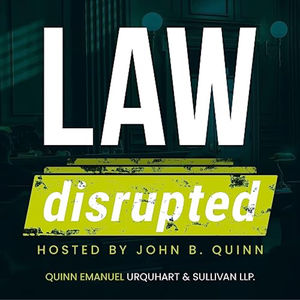John Quinn is joined by Alex Spiro, partner in Quinn Emanuel’s New York and Miami offices and one of the best-known trial lawyers in the U.S. Alex explains that his approach to trial preparation is to immerse himself into the evidence as trial approaches. He reads every relevant document to understand even tangential details, rather than just looking for “hot docs.” This deep dive helps him construct a narrative that, if all goes well, leads the jury to a collective “Eureka” moment, where the verdict becomes clear. Alex also explains that he does not rely on mock juries and external validation because his themes must resonate with his own beliefs to be compelling. Instead, he prefers to bounce ideas off colleagues who may suggest course corrections. Alex says that understanding human psychology is crucial because the motivations behind actions often matter more than the actions themselves. The discussion turns to how Alex balances the demands of multiple cases while remaining completely focused on the next upcoming trial. He credits his ability to compartmentalize and work long hours, as well as strong support from trial teams. He also explains to clients from the outset that during their “moment of truth,” he will prioritize their case entirely, but before then, he might be prioritizing the impending trials of other clients. The discussion then turns to criminal justice reform, a subject Alex is passionate about. He describes the criminal justice system as structurally biased, especially against marginalized communities. He identifies the most urgent priorities for reform as bail reform, sentencing disparities, and changing the current system’s backward-looking nature, which he believes perpetuates outdated and discriminatory standards. When asked about AI’s role in sentencing, Alex expresses concerns that AI could reinforce existing biases by relying on historical data, potentially leading to harsher outcomes, particularly for first-time offenders. Finally, John and Alex discuss that it has become harder for lawyers to represent controversial clients but emphasize the importance of doing so

Trial Practice with Alex Spiro
29分钟 · 143·
143· 0
0
 143
143 0
0
